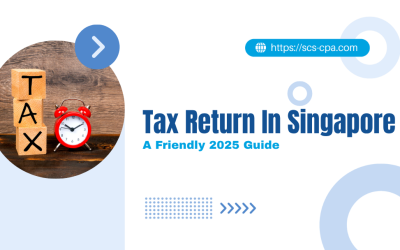Singapore is a thriving global hub known for its strong economy and vibrant industries. As the nation continues to grow, businesses rely on a mix of both local and foreign talent to maintain their competitive edge. But why is it necessary to have foreign workers in Singapore instead of relying solely on local talent? Foreign workers bring essential skills that may be scarce locally, complementing the resident workforce and driving innovation across sectors.
However, companies must adhere to the quota for hiring foreign workers in Singapore to support a balanced workforce that doesn’t undermine local job opportunities.
Overview of the Foreign Worker Quota System
Foreign worker quota and levy in Singapore
Businesses that hire talent from overseas are required to follow a foreign worker quota system to ensure compliance with regulations.
So, what is the foreign worker quota in Singapore exactly?
Essentially, a foreign worker quota is a regulatory framework that limits the number of foreign workers a company can employ, with the quota varying depending on the industry. In addition to the quota, employers must also pay a monthly levy for each foreign worker hired.
The levy rates differ based on the worker’s skills and the sector they work in, helping businesses manage their workforce costs while balancing local and foreign talent.
Sector-specific quotas: Focus on F&B businesses
Under the work permit quota for the service sector, the food and beverage (F&B) industry in Singapore faces stricter limits on hiring foreign workers. F&B businesses can only employ foreign workers for up to 35% of their total workforce and must pay a higher levy for foreign workers in this sector.
These tighter restrictions aim to encourage more Singaporeans to enter the F&B industry, which is seen as a vital area for local job creation.
Quota regulations for self-employed entrepreneurs
Self-employed individuals in Singapore who wish to hire foreign workers for their business must comply with specific regulations.
Unlike companies, self-employed foreigners are limited to employing only one foreign worker, so selecting a candidate with the right skills and experience is vital to support business growth.
The foreign worker quota for self-employed individuals is set at 20%, offering more flexibility than some industries. Additionally, a monthly levy must be paid, with the rate depending on the sector the individual operates in, as well as the foreign worker’s qualifications.
Mechanics of the Foreign Worker Quota
“How many foreign workers can I hire in Singapore?” This is a common question among companies navigating the local employment landscape.
To clarify these limits, the foreign worker quota system in Singapore sets restrictions based on the ratio of local employees—Singapore citizens and permanent residents (PRs)—to foreign workers. Each industry faces a specific quota, expressed as a percentage of the total workforce.
For instance, with a 35% quota, a company in that sector can have foreign workers constitute up to 35% of its overall workforce. This system ensures a balanced integration of local and international talent within various industries.
Calculation Methodology for Worker Quotas
The Ministry of Manpower establishes industry-specific quotas for S Pass and Work Permit holders, excluding Employment Pass categories. Therefore, companies in Singapore planning to expand must carefully assess these quotas.
Determining the ratio of how many Singaporeans are required for 1 work permit is necessary to maintain the balance between local and foreign workers, ensuring a sustainable workforce composition across various sectors.
Quota for S Pass holders
| Sector | Quota | Tier | Percentage | Levy Rate |
| Construction, Manufacturing, Marine shipyard, Process | 15% | Tier 1 | ≤10% | $550 |
| Tier 2 | >10% to 15% | $650 | ||
| Services | 10% | Tier 1 | ≤10% | $550 |
Quota for work permit holders
| Sector | Quota | Tier | Percentage | Levy Rate |
| Construction | 83.3% | Malaysians, NAS, PRC | ≤83.3% | $300 / $700 |
| NTS | $500 / $900 | |||
| Off-site | $250 / $370 | |||
| Manufacturing | 60% | Tier 1 | ≤25% | $250 / $370 |
| Tier 2 | >25% to 50% | $350 / $470 | ||
| Tier 3 | >50% to 60% | $550 / $650 | ||
| Services | 35% | Tier 1 | ≤10% | $300 / $450 |
| Tier 2 | >10% to 25% | $400 / $600 | ||
| Tier 3 | >25% to 35% | $600 / $800 |
Table reference: Ministry of Manpower. (as of 1 July 2024)
Criteria for Foreign Worker Eligibility
Essential qualifying criteria
The Ministry of Manpower stipulates specific requirements for foreign workers in Singapore, including minimum age, educational qualifications, relevant work experience, and a clean criminal record. However, do note that these criteria may vary by sector and the type of work permit.
Classification of skill levels
Foreign workers in Singapore are categorised by the Ministry of Manpower into three skill levels: skilled, semi-skilled, and unskilled.
Skilled workers typically require tertiary education or significant work experience, semi-skilled individuals often have primary or secondary education, while unskilled workers may only need minimal or no formal education and little work experience.
Manage Workforce Regulations with Expertise
Navigating Singapore’s complex regulatory landscape is vital for the growth and compliance of any business. At Singapore Corporate Services (SCS), a leading corporate service provider, we excel in offering companies expert guidance and support.
Our team provides comprehensive business incorporation services and ensures your hiring strategies align with both local and international standards. Whether you are initiating a startup or scaling an established enterprise, we are equipped to assist you in growing your team compliantly and efficiently, safeguarding your operations against potential regulatory challenges.
NOTE: The contents provided in this article are accurate as of its publication date. As regulatory changes may occur over time, we advise contacting us for up-to-date information specific to your needs. For more resources on corporate compliance and workforce solutions, head over to https://scs-cpa.com/
Understanding the Core Types of Audits and Their Roles in Accounting in Singapore
Learn the key types of audits in Singapore to build trust and stay compliant. Examples are statutory, internal, GST, and forensic.
Tax Return In Singapore: A Friendly 2025 Guide
Want to be a responsible business owner? Read this guide to tax return in Singapore to help understand tax filing and play your part.
How to Change Your Company Name in Singapore
A company's name can significantly shape its identity, yet there are times when a change becomes...





